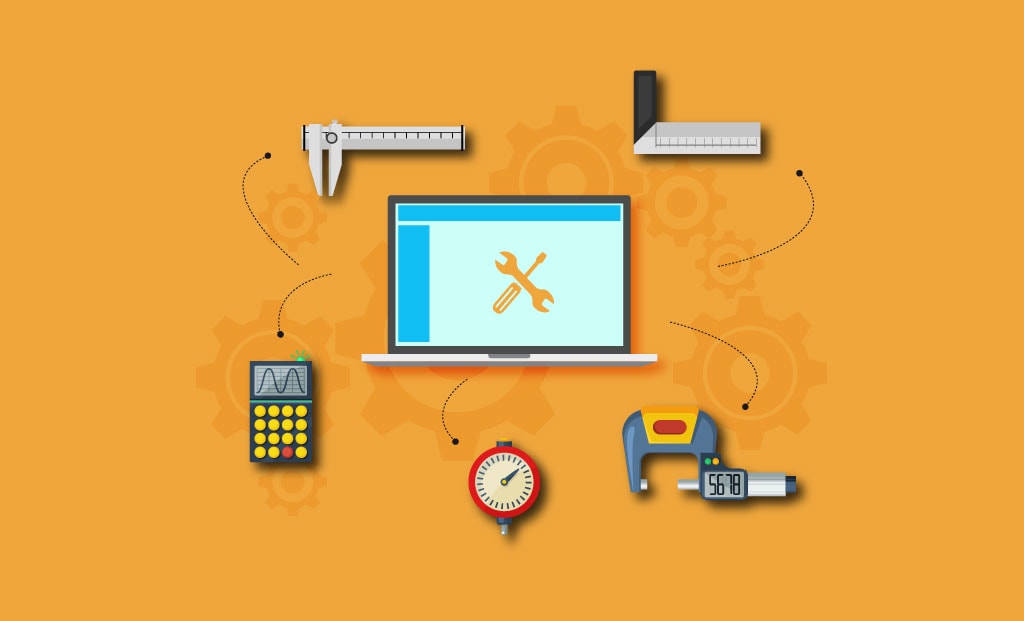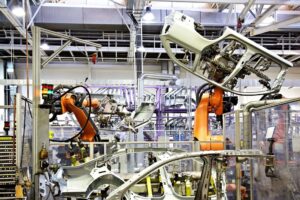What is Gage Calibration in manufacturing?
Measuring instruments used in manufacturing are often subjected to continuous operational pressure such as vibrations, mechanical and electrical pressure, leading to wear & tear, and reduction in measurement accuracy. They need to be frequently calibrated so that they retain their accuracy which is vital for the entire manufacturing and quality control process.
Gage Calibration is a process where measuring instruments used in manufacturing operations are re-calibrated to their previous state of accuracy and working condition. This ensures that the instruments continue to give consistent and accurate readings, thereby retaining the quality of the products manufactured.
The accuracy of the gage is determined by comparing it with standards set by the National Institute of Standards and Technology (NIST), which is a recognized standard in the U.S.A. A calibrated gage can be tracked to its master source thereby streamlining the quality management process.
Importance of Gage Calibration in Quality Management
Measuring instruments are a critical piece in manufacturing operations, and manufacturers have to ensure that they are properly and accurately calibrated for uninterrupted & error-free operations.
Instruments that have lost their accuracy leads to,
- Safety risk to machines and personnel during manufacturing operations.
- Improper manufactured product batches that get wasted due to inaccurate measurements.
- Regulatory compliance issues leading to shutting down or suspension of the manufacturing unit.
- Penalties and fines for compliance violations.
The accuracy of a gage has a direct impact on the final product that is manufactured. An inaccurate measurement has the potential to impact quality control, documentation and ensures non-conformance of the product to recognized quality standards. In short, manpower, resources, money and time are wasted in manufacturing a defective product.
A Gage Calibration system,
- Optimizes quality control with gage calibration and management.
- Ensures correct gage and quality of tools.
- Prevents loss arising out of incorrect or out of calibration tools.
- Ensures working condition of gages through efficient tracking at all times.
- Prevents auditing and liability issues by maintaining comprehensive documentation.
Gage Calibration leads the path to an efficient and disciplined quality management system. Manufacturing enterprises are increasingly adopting ERP systems that let them manage and track gage calibration activities.
Gage Calibration in OmegaCube ERP
OmegaCube ERP has an in-built Gage Calibration management that enables manufacturers to track and record gage calibrations for their tools and equipment. Whether done in-house or out-sourced, they can maintain records of it within OmegaCube ERP.
Gages are regularly scheduled, measured and recorded within the ERP system, thereby ensuring optimum product quality that complies with respective industry standards.
With OmegaCube ERP’s Gage Calibration, manufacturers can,
- Create Gage master record and enter NIST number, serial number, calibration frequency and procedure.
- Issue gages to the production floor with or without work order numbers.
- Issue single or multiple gages against a work order.
- Access gage report to check gages that can be issued.
- Return gages back from production after successful completion of work orders.
- Return single or bulk gages.
- Set gage calibration schedule in the gage master.
- Get system alerts for gages that need calibration based on set criteria.
- Auto-update of calibration date in the gage master.
- Access Gage Issue & calibration history, pending gage return by WO, upcoming calibrations, and next gage calibration list.
Conclusion
Gage Calibration is often a low-focus area for manufacturers and they are usually happy managing it using manual and disjointed processes. Due to this, they often run into issues pertaining to quality control and compliance as their products do not meet the quality specifications.
The overall health and accuracy of the tools and measurement devices have a direct impact on the quality of the manufactured product, parts and associated services. Therefore, Gage Calibration must be on top of the list and manufacturers should adopt an automated, well-managed system for better quality management and compliance to industry standards.






